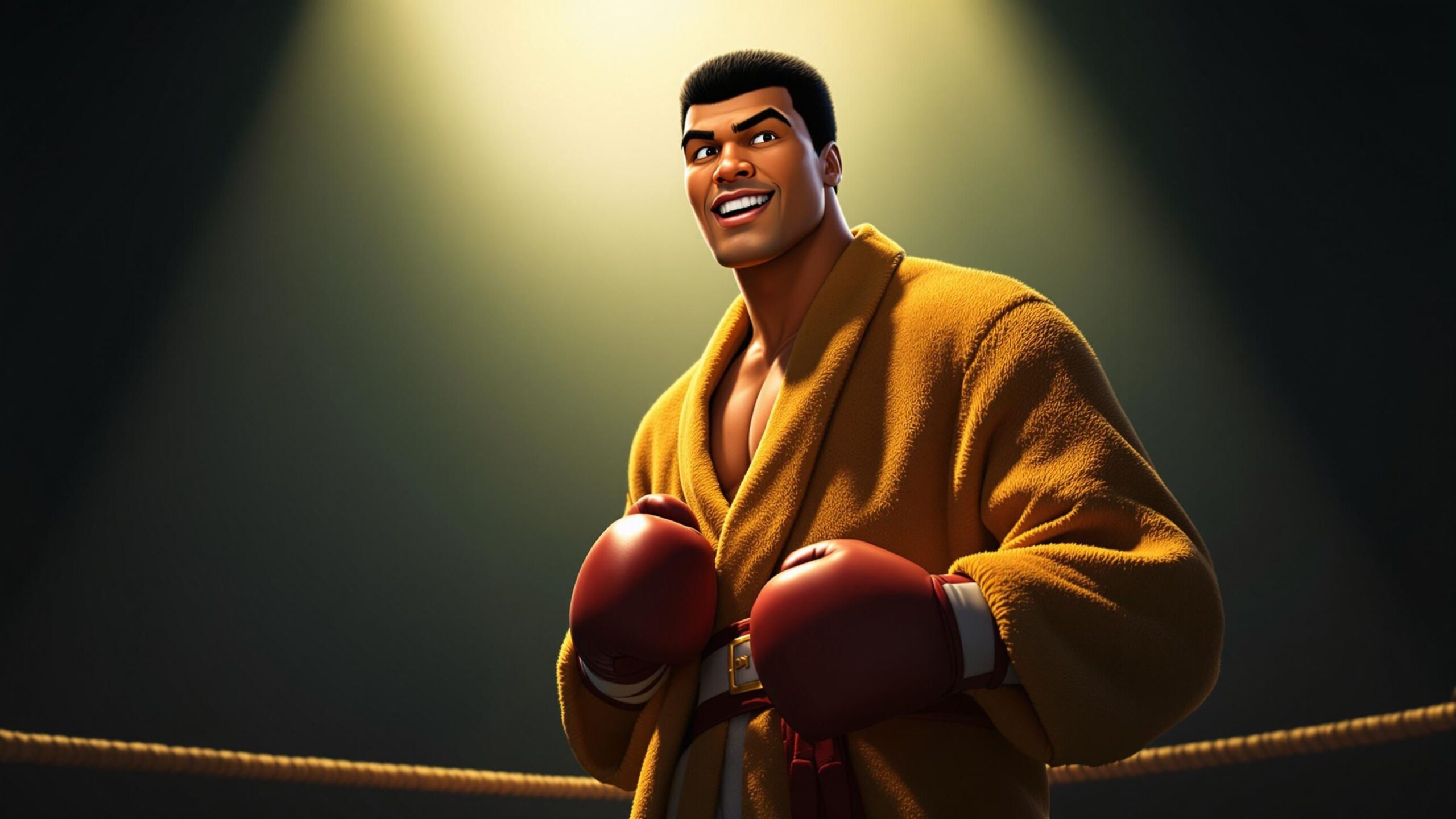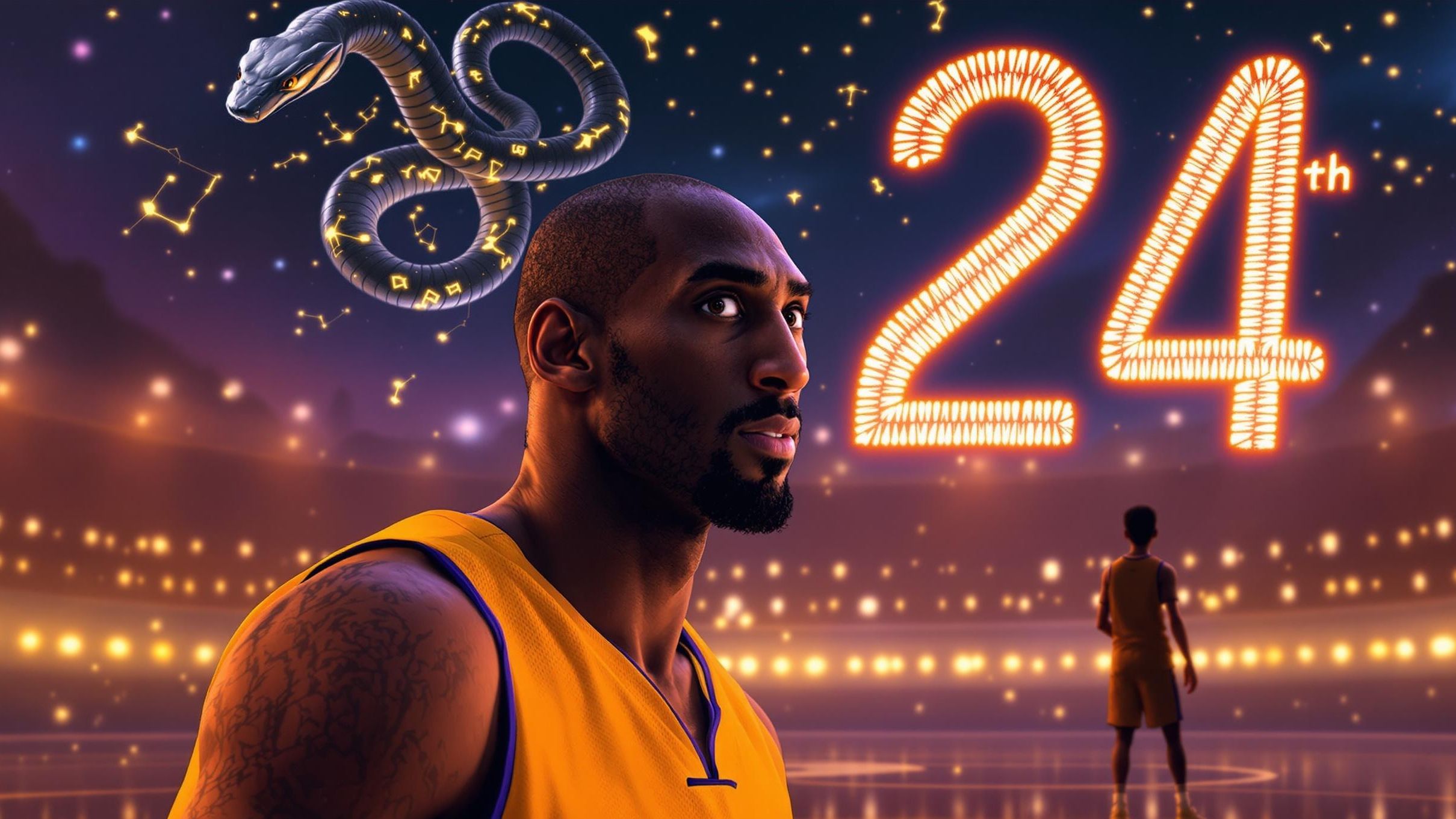There are athletes, and then there is Muhammad Ali. He didn’t just throw punches—he delivered poetry with power. He didn’t just win fights—he waged wars of will, both in the ring and on the global stage. Ali wasn’t just “The Greatest” because he said so—though he did, often. He earned it through dazzling footwork, fearless activism, and a personality too big to be contained by ropes or rules. Born Cassius Marcellus Clay Jr. in Louisville, Kentucky, Ali grew up in a world where Black voices were often silenced and Black dreams were often dismissed. But young Cassius wasn’t one to shrink back. By the time he changed his name and changed the sport, he was well on his way to changing history itself. This is the story of Muhammad Ali—a boxer who could float like a butterfly, sting like a bee, and speak like a prophet. A champion who used his fists to fight opponents and his voice to fight oppression. A man who proved that being a hero wasn’t just about how hard you hit—it was about what you stood for.
The Rise of a Young Titan: From Cassius Clay to Olympic Glory
Ali’s journey began with a stolen bicycle and a vow. At age 12, when his bike was stolen, a furious young Cassius Clay reported the theft to a local policeman, who also happened to be a boxing coach. That moment sparked a fire—and soon the kid from Louisville was turning his rage into rhythm, his anger into art. He trained tirelessly, developing a style that defied boxing norms. While most fighters planted their feet, Ali danced. He weaved, he jabbed, he taunted. He was lightning in human form. At 18, he made the world take notice by winning a gold medal at the 1960 Rome Olympics. America had a new golden boy, and the world had a preview of something greater. Turning pro, Ali promised he’d become heavyweight champion—and not in a quiet, humble way. He rhymed, he bragged, he declared himself “The Greatest” before anyone else dared. And in 1964, at age 22, he backed it up by shocking the world and defeating Sonny Liston. He didn’t just win; he dismantled Liston, making good on every word he spoke. Then came the name change. Cassius Clay became Muhammad Ali, converting to Islam and aligning with the Nation of Islam. It was bold. It was controversial. And it was Ali being Ali—unapologetic, unfiltered, and unstoppable.
The Art of the Ring: Dancing, Dazzling, and Dominating
Ali’s boxing style was revolutionary. While heavyweight fighters were expected to be slow and brutal, Ali brought the grace of a dancer and the precision of a surgeon. He called it “float like a butterfly, sting like a bee”—and that’s exactly what it looked like. He would lean away from punches by mere inches, taunt his opponents mid-fight, and land lightning-fast combinations before they could blink. His fights weren’t just contests of power; they were performances. His trilogy against Joe Frazier, including the “Fight of the Century” and the legendary “Thrilla in Manila,” became the stuff of boxing folklore. Each bout was as much psychological warfare as physical combat. Ali’s 1974 “Rumble in the Jungle” against George Foreman may be his greatest masterpiece. Facing a younger, stronger, undefeated champion in Foreman, Ali deployed the now-famous “rope-a-dope” strategy—leaning against the ropes, absorbing blows, and waiting for his moment. In the eighth round, he stunned the world again, knocking Foreman out and reclaiming his crown. Every time they counted him out, Ali proved them wrong. Every time they doubted him, he dazzled. He wasn’t just a boxer. He was the ringmaster of a global spectacle.
The Conscientious Objector: Fighting for More Than Titles
In 1967, Ali made the boldest move of his life: he refused to be drafted into the Vietnam War. Citing religious beliefs and his opposition to the war, he famously declared, “I ain’t got no quarrel with them Viet Cong.” For that statement—and his refusal to serve—he was stripped of his boxing titles, banned from the sport, and faced five years in prison. Ali’s decision cost him the prime years of his career. But it elevated him from sports hero to cultural icon. In a time of civil unrest, racial tension, and war protests, Ali became a symbol of resistance. He spoke truth to power, even when it meant losing everything. Eventually, the Supreme Court overturned his conviction. But during those lost years, Ali didn’t disappear. He toured colleges, gave speeches, and became a hero to antiwar activists and civil rights leaders alike. He didn’t just defend his title—he defended his truth.
The Global Icon: Loved, Loathed, and Ultimately Adored
Ali’s polarizing persona eventually gave way to universal admiration. As he aged, as his views softened and the world changed, people began to see the full picture: a brave, brash, brilliant man who stood tall in every arena life threw at him. He lit the Olympic flame in 1996, hands shaking from Parkinson’s disease, and brought the world to tears. He met world leaders, visited refugee camps, and continued to speak out for justice. He became more than a boxer or activist—he became a beacon. His influence extended into music, fashion, politics, and language. His swagger inspired generations of hip-hop artists. His rhymes predated modern trash talk. His courage empowered athletes to use their platforms. From LeBron James to Colin Kaepernick, today’s sports stars walk the path Ali paved.
The Final Rounds and Lasting Legacy
As Parkinson’s disease took its toll, Ali’s body slowed, but his spirit never wavered. He remained a global figure of inspiration, humility, and peace until his death in 2016. His funeral was a global event—attended by presidents, celebrities, athletes, and ordinary fans who saw him not just as “The Greatest,” but as their greatest. Ali’s impact can’t be measured by belts or wins. It lives in the courage he showed outside the ring. It lives in the pride he gave to Black Americans, to Muslims, to dreamers, and to rebels. He showed the world that a fighter’s true strength isn’t in the punch—it’s in the purpose behind it.
The Man Who Dared to Be Greatest
Muhammad Ali changed the definition of greatness. He danced through punches and dodged labels. He stood up when it would’ve been easier to stay silent. He fought for justice just as fiercely as he fought for titles. And in doing so, he became more than a champion—he became a legend whose voice still echoes through sports, politics, and culture. He once said, “I am the greatest. I said that even before I knew I was.” That confidence wasn’t arrogance—it was prophecy. And now, years after his final bell, the world still agrees: Muhammad Ali was, and will forever be, The Greatest.




